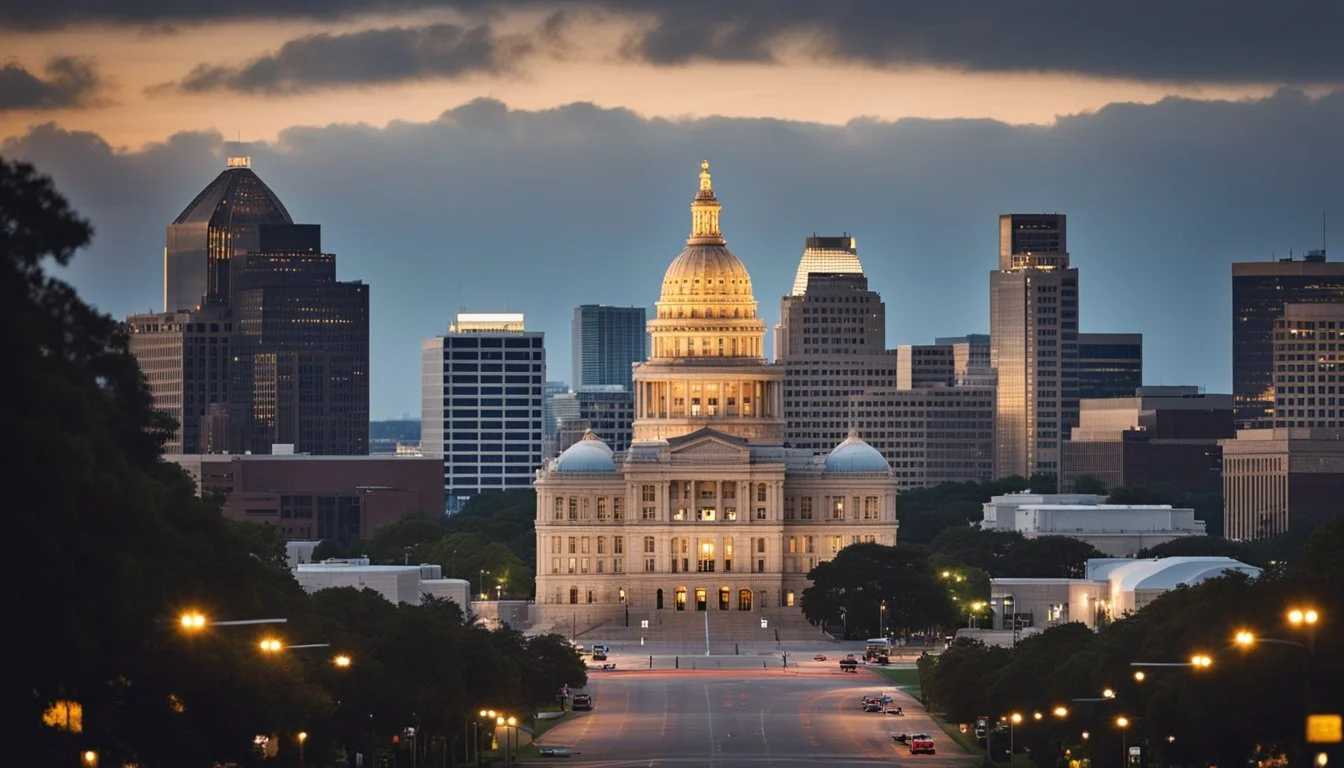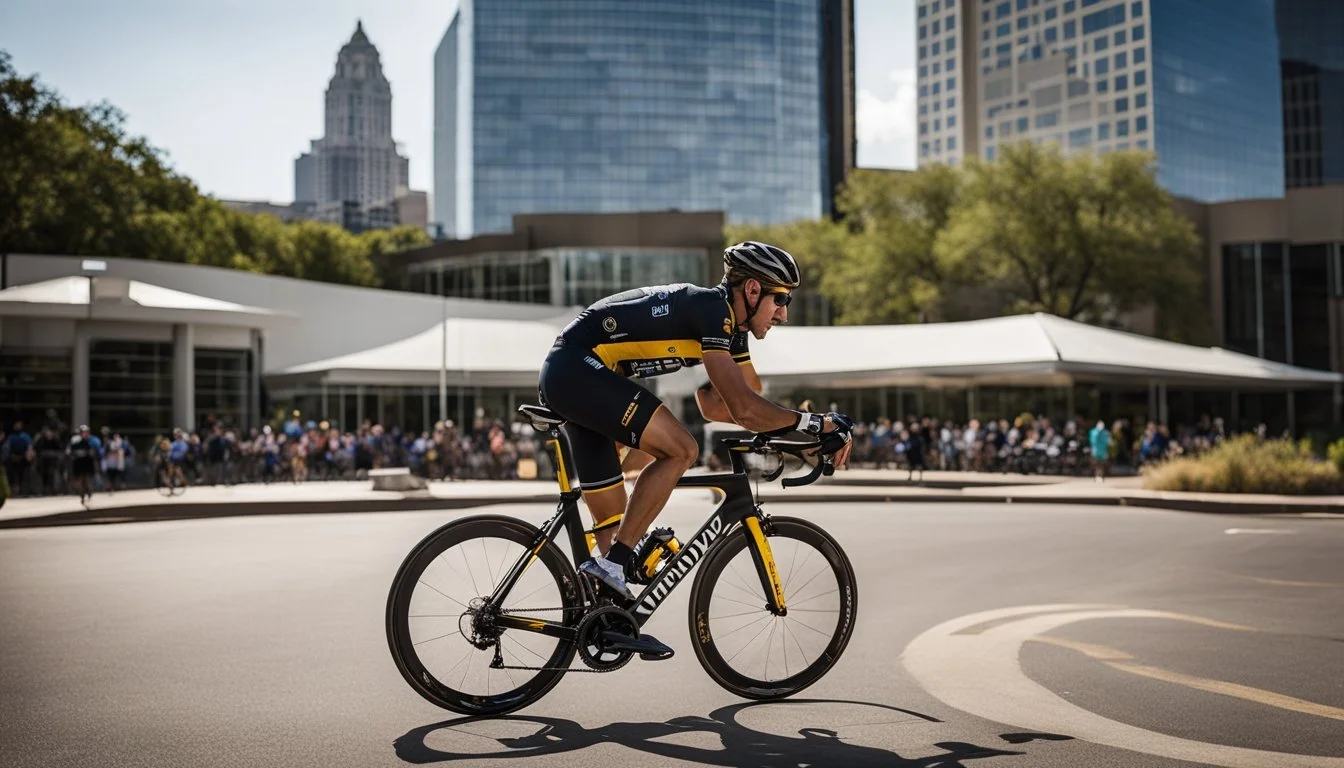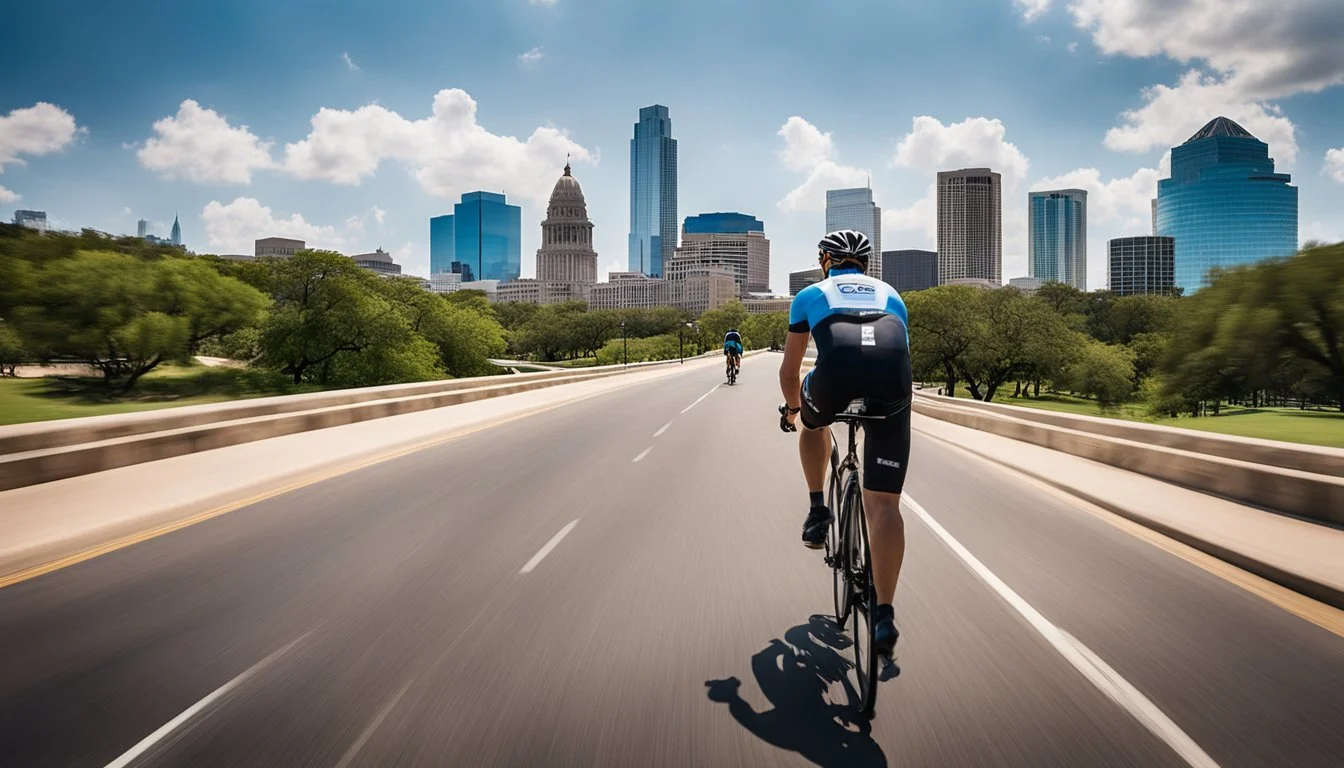Lance Armstrong's Austin: Exploring Controversy-Informed Local Landmarks
Lance Armstrong, a name synonymous with cycling greatness and scandal, has left an indelible mark on Austin, Texas. Known for his record-setting seven Tour de France titles that were later stripped due to doping allegations, Armstrong remains a polarizing figure. Austin's landscapes and landmarks still tell stories of his rise, fall, and attempts at redemption.
Visitors to Austin can embark on a controversy-informed tour, tracing Armstrong's footsteps through the city. From local coffee shops where whispers of his comeback first emerged to the charity events he now dedicates his time to, each site encapsulates a chapter of his tumultuous journey. This tour offers a unique lens through which to view Austin, shaped by the highs and lows of a once-celebrated athlete.
Discover how Austin's vibrant streets and Armstrong's complex legacy intertwine. The journey promises a reflective look at resilience and reputation, whilst providing a deeper understanding of both the man and the city that influenced his story.
Lance Armstrong's Legacy
Lance Armstrong's legacy is a tangled web of extraordinary athletic achievements overshadowed by one of the most infamous doping scandals in sports history.
Cycling Career and Achievements
Lance Armstrong rose to prominence in the cycling world with his exceptional performances in the Tour de France. He won the prestigious race seven consecutive times from 1999 to 2005. These victories were awe-inspiring, especially considering his successful battle against testicular cancer before his stunning comeback.
Armstrong's resilience and determination made him a global icon. He founded the Livestrong Foundation, which raised over $500 million for cancer awareness and support. His memoirs and public appearances inspired countless individuals. Many sponsors supported him, further solidifying his status as a celebrated athlete.
The Doping Controversy
Despite his remarkable achievements, Lance Armstrong's legacy is marred by a systematic doping scandal. Accusations of drug use trailed him throughout his career, eventually leading to a comprehensive investigation by the US Anti-Doping Agency (USADA). In 2012, the agency released a report detailing how Armstrong and his team used performance-enhancing drugs to evade detection and maintain an edge in competitions.
This scandal led to Armstrong being stripped of his Tour de France titles. He faced legal battles, lost sponsorship deals, and saw a dramatic fall from grace. The media and sports community viewed the controversy as a profound breach of ethics and a warning of the pressures and temptations in professional sports.
Austin's Place in Armstrong's Story
Lance Armstrong's relationship with Austin is deeply rooted in both his professional and personal life. His charitable contributions and involvement in local businesses showcase his impact on the city.
Charitable Work and Community Involvement
Lance Armstrong has been a prominent figure in Austin's charitable landscape, particularly through his work with the Livestrong Foundation. Founded in 1997, Livestrong has been pivotal in providing support for cancer survivors. The foundation's headquarters, situated in Austin, creates a grounding presence that symbolizes hope and recovery for many individuals.
Armstrong's frequent involvement in community events and initiatives further solidifies his connection to the city. He has supported various local charities, funding programs that benefit diverse communities. Additionally, his efforts have often included participating in fundraising events, marathons, and public speaking engagements, all in an effort to promote cancer support and general well-being in Austin.
Local Businesses and Endorsements
Armstrong's influence extends beyond charity work into the business community of Austin. He owned and operated several local businesses, including the popular coffee shop and bike shop, Juan Pelota Café and Mellow Johnny's Bike Shop. These ventures not only reflect his personal interests but also contribute to the local market and economy.
Though his endorsements took a significant hit post-2012 due to the doping scandal, Armstrong's earlier collaborations with brands like Nike brought attention to Austin. His local endorsements often promoted products and services that aligned with both his athletic career and philanthropic efforts, aiding the city's market visibility.
Tour of Armstrong-Related Landmarks
Lance Armstrong's influence is deeply rooted in Austin, Texas, with several landmarks highlighting his contributions to the local community. These include Mellow Johnny's Bike Shop and the Livestrong Foundation Headquarters, both of which hold significant ties to his cycling career and charitable efforts.
Mellow Johnny's Bike Shop
Mellow Johnny's Bike Shop is a staple for Austin's cycling enthusiasts. Opened by Lance Armstrong in 2008, the shop is located in the heart of downtown Austin. It serves as both a retail space and a cultural hub for cyclists. The shop's name derives from Armstrong's nickname, "Mellow Johnny," which is a playful reference to the yellow jersey ("maillot jaune" in French) worn by the overall leader in the Tour de France.
The store offers a wide range of cycling gear and accessories, catering to both amateur and professional cyclists. It also features a café, known as Juan Pelota Café, creating a community space for like-minded individuals. Special events, group rides, and training sessions often take place, reinforcing its role as a central gathering point for Austin's cycling community.
Livestrong Foundation Headquarters
The Livestrong Foundation Headquarters exemplifies Lance Armstrong's dedication to cancer research and patient support. Founded in 1997, the foundation initially focused on fundraising and awareness for those affected by cancer. It has evolved into a significant entity offering various programs to improve the lives of cancer survivors.
Located in East Austin, the headquarters is more than just an office space. It is designed with a welcoming environment to provide resources and support for cancer patients and their families. The foundation hosts various events and workshops, aimed at promoting health, well-being, and recovery.
The foundation's influence extends beyond Austin, but its headquarters remains a central spot for those seeking cancer-related support and information. The architecture and design of the building reflect the organization's mission to create a comfortable, supportive community space.
This tour of Armstrong-related landmarks encapsulates his lasting impact on both the local and global stage, balancing his contributions to cycling with his charitable endeavors.
Controversial Impact on Austin’s Culture and Image
Lance Armstrong's presence in Austin has left a multifaceted impact on the city's culture and image, marked by both admiration and disapproval. These effects are largely shaped by how the media reports his story and public reactions to his infamous controversy.
The Role of Media in Armstrong's Narrative
The media has extensively covered Lance Armstrong’s career and the doping scandal that led to his downfall, influencing Austin's image. Publications such as NBC News and NPR have detailed the scandal's aftermath, highlighting how it shook the local community and cycling enthusiasts.
News outlets often juxtaposed Armstrong's achievements with his malpractice, cementing a mixed legacy. His association with Austin, from the elaborate bike shop that became a cultural hub to his participation in local events, has been well-documented. Local and national media painted a picture that is as much about Austin's response to the controversy as it is about Armstrong's actions.
Public Perception and Opinion
Public opinion in Austin about Lance Armstrong remains deeply divided. While some see him as a tainted symbol of lost integrity in sports, others remember him for his community contributions and advocacy for cancer survivors.
Armstrong's bike shop and café in downtown Austin contributed to local commerce and became community landmarks despite his tarnished reputation. Conversations among residents reflect this division—the debate often centers around separate views on his philanthropic efforts versus his ethical breaches.
By shaping public discourse, these varied opinions have challenged how Austin is viewed externally, with the city embodying both the positive and negative aspects of Armstrong’s legacy.
The Ethics of Sports and Sponsorship
Examining the relationship between competitive sports and sponsorship, and addressing the ethical challenges of doping in cycling, reveals critical considerations for athletes, sponsors, and governing bodies.
Sponsorship in Competitive Sports
Sponsorship roles in competitive sports extend beyond financial support. They shape athletes' public personas, influence sports markets, and impact ethical standards.
Sponsors drive branding, utilizing athletes like Lance Armstrong to enhance visibility. Armstrong's partnerships with brands such as Nike and Oakley positioned him as a symbol of triumph, until doping revelations tainted this image.
Ethical sponsorship mandates transparency and accountability. When doping scandals arise, sponsors face dilemmas: sever ties or push for athlete reform. The fallout from Armstrong's admissions led to significant sponsor withdrawals and broader calls for ethical reforms in sponsorship practices.
Addressing Doping and Ethics in Cycling
Doping undermines the foundational ethics of fair play in sports. In cycling, the use of performance-enhancing drugs, as evidenced by Lance Armstrong's case, highlights severe ethical breaches.
The United States Anti-Doping Agency (USADA) investigation into Armstrong's drug use between 1999 and 2005 confirmed wide-ranging doping practices. These findings prompted discussions on stricter anti-doping regulations and the ethical responsibilities of athletes.
Addressing doping involves rigorous testing, transparent reporting, and ethical training for athletes. Reform efforts aim to restore integrity in cycling, emphasizing the importance of clean competition and fair play. Institutions must uphold these values to foster ethical sports environments and rebuild public trust.
Legal and Economic Ramifications
Lance Armstrong's legal battles and their impact on the local economy of Austin offer insight into how high-profile controversies can influence a community.
Armstrong’s Legal Battles
Armstrong faced numerous legal challenges, notably the whistleblower lawsuit by the U.S. government. The case, initiated by former teammate Floyd Landis, claimed Armstrong defrauded the government by using performance-enhancing drugs while sponsored by the U.S. Postal Service.
In April 2018, Armstrong settled the lawsuit for $5 million, avoiding a potential $100 million penalty. This settlement impacted his personal finances and drew significant media attention. The legal battles also involved multiple lawsuits from sponsors, resulting in Armstrong paying millions in damages.
Influence on Local Economy
Armstrong's controversies had mixed effects on Austin's economy. On one hand, the city benefited from the increased global attention. Media coverage of Armstrong's legal cases often mentioned Austin, promoting tourism. Several local businesses also reported spikes in traffic due to curious visitors.
On the other hand, sponsorship deals and endorsements linked to Armstrong saw fluctuations, affecting local market dynamics. His involvement in the fitness industry, including bike shops and training centers, faced scrutiny, potentially altering consumer trust and spending habits.
Armstrong's high-profile legal and economic entanglements serve as a case study in the complex interplay between celebrity, controversy, and local economies.
Moving Forward: Recovery and Redemption
After a highly publicized downfall, Lance Armstrong focused on recovery and building a future that benefitted society. Austin remains a central hub for various sporting events, reflecting the community's continued support for athletic endeavors.
Armstrong's Work Beyond Cycling
Post-cycling, Lance Armstrong invested his efforts into numerous charitable activities. He actively supported cancer research and founded the LIVESTRONG Foundation, which raised millions for cancer survivors. Despite controversy, the foundation managed to maintain significant community support due to its impact on lives affected by cancer.
In addition to charity work, Armstrong ventured into business, starting the Mellow Johnny's bike shop in Austin. This shop not only served cyclists but also promoted healthy living and sports in the local area. His initiatives emphasized resilience and recovery, reshaping his public image while positively impacting the community.
Austin as a Hub for Sporting Events
Austin has transformed into a vibrant center for sporting events, partly due to Armstrong's influence. The city hosts annual marathons, cycling races, and triathlons, attracting athletes worldwide. Venues like the Circuit of The Americas and the Austin Sports Center further enhance the city's reputation as a sports hub.
Local events, such as the Austin Marathon and the Texas Mamma Jamma Ride, are examples of how the community rallies to support sports and charity. These events not only promote physical fitness but also foster community support networks, demonstrating the city's ongoing commitment to the values of recovery and teamwork.
Austin's rich sporting culture, combined with Armstrong's contributions, highlights the city's dedication to both athletic excellence and community well-being.









